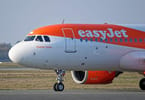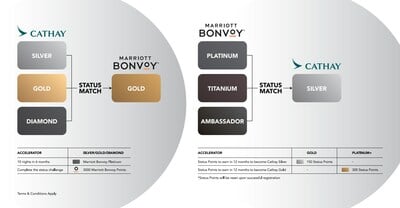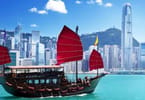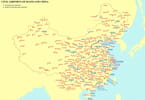The jungle-swathed ridges of Southeast Asia’s Golden Triangle divide two worlds.
On one side, in Thailand, well-heeled tourists savor the luxuries of Anantara and Four Seasons resorts. On the other, in Myanmar, mule caravans laden with opium, gemstones and jade still ply hidden mountain trails. Much remains concealed from even the most adventurous traveler in this opium-growing region where the borders of Myanmar, Thailand and Laos converge.
Yet one secret it has given up is that of the so-called Lost Army, Chinese soldiers abandoned in 1949 by their leader Chiang Kai-shek who fled to Taiwan after being defeated by his Communist nemesis Mao Zedong on mainland China.
Trapped in the southwestern Yunnan province, the troops of Chiang’s 93rd Division staged a fighting retreat into the adjoining Golden Triangle, from where they launched futile attempts to re-invade their Chinese homeland. Finally, the survivors struck a deal with the Thais: they were allowed to set up an autonomous mini-state in return for defending Thailand’s northern borders from local communist insurgents.
The site they chose was a mountain top called Mae Salong, 15 kilometers from the Burmese border, where the slopes were carpeted with red-and-white opium poppies. General Lei Yutian, the last surviving commander of the Lost Army, reflects on the Golden Triangle’s transformation from drug fiefdom to tourist destination.
Guns to Calculators
“First we came with guns,” said Lei, 93, as he sipped tea in a manicured flower garden that was once the parade ground where he drilled a 20,000-strong private army. “Then we became farmers. Now we use calculators.”
Those calculators have been busy of late counting the benefits of tourism as resort operators like Anantara build hotels to accommodate wealthy tourists venturing deeper into the mist-shrouded mountains of the triangle, a once-lawless frontier where the borders of Thailand, Myanmar and Laos converge.
The 77-room Anantara offers spa treatments, Thai banquets and $400-a-night rooms with balconies overlooking the Mekong River at the exact spot where the three countries meet. Nearby, the Four Seasons hotel chain has created a five-star jungle encampment, each $2,000-a-night tent equipped with its own copper bathtub.
Both resorts offer guests the chance to commune with a herd of elephants and train to become a mahout. Nearby, a Hall of Opium tells the colorful and violent story of the Golden triangle’s drug trade.
“The attraction here is partly nature,” said Bodo Klingenberg, the Anantara’s German-born general manager as we dined al fresco beside a riverside rice paddy, watched by a white water buffalo and her doe-eyed calf. “But it’s also the mystique of the Golden Triangle.”
China in Thailand
The Lost Army’s then leader, General Duan Shiwen, became a drug warlord, according to Alfred W. McCoy’s 1972 book “The Politics of Heroin in Southeast Asia,” and recreated a piece of pre-revolutionary China inside Thailand — temples and houses with distinctive curved Chinese roofs, restaurants serving fine Yunnanese cuisine and a population that, despite intermarrying with local hill tribes and Thais, continued to speak Mandarin Chinese and various Yunnan dialects.
Duan died in 1980. His successor, General Lei, denies any subsequent involvement in the drug trade, but kept up the Lost Army’s war against communist insurgents.
As a reward, the Thais granted Lei and his men citizenship. Mae Salong was renamed Santikhiri, meaning Hill of Peace, although most still use the original name. The government built an all-weather road linking it with Chiang Rai, capital of Thailand’s northernmost province. The Lost Army had come in from the cold.
Growing Tea
Under Lei, the old soldiers and their descendants have taken up licit business activities. Chamroen Cheewinchalermchot, 52, son of a colonel, has embraced both tourism and tea-growing. He runs Mae Salong Villa, a clean, comfortable hostelry with $30-a-night rooms overlooking plantations producing high-grade oolong tea.
The triangle has long been on the itinerary of backpackers and trekkers escaping Thailand’s steamy southern resorts for the cooler northern mountain air, especially during the dry season between October and the mid-April Thai New Year water festival, called Songkran.
Now, travelers demanding luxury and accessibility as well as adventure are discovering they can find all these things by taking a one-hour flight from Bangkok to Chiang Rai.
Once there, the Anantara and Four Seasons resorts, and tourist attractions such as Mae Salong can be reached inside 90 minutes by road.
Long Tailed Boat
I chose to arrive in more dramatic fashion. At Chiang Saen, a history-rich river port that was once the capital of an ancient kingdom, I boarded a hang yao, or sleek Thai-style long tailed boat, which aquaplaned up the Mekong, veering between the Thai and Lao sides to dodge sand banks, before depositing me at a jungle jetty.
There, a lumbering elephant emerged from the undergrowth to provide transportation on the final leg to Anantara resort.
Plodding through the silent teak forest, the Golden Triangle didn’t seem much different from when the Lost Army first sought refuge. Except that, back then, there weren’t spas or copper bath tubs to recline in at the end of the journey. And the warlords of those days carried guns, not calculators.
ABUBUWAN DA ZA KU GUDU DAGA WANNAN LABARI:
- Those calculators have been busy of late counting the benefits of tourism as resort operators like Anantara build hotels to accommodate wealthy tourists venturing deeper into the mist-shrouded mountains of the triangle, a once-lawless frontier where the borders of Thailand, Myanmar and Laos converge.
- The triangle has long been on the itinerary of backpackers and trekkers escaping Thailand's steamy southern resorts for the cooler northern mountain air, especially during the dry season between October and the mid-April Thai New Year water festival, called Songkran.
- “First we came with guns,” said Lei, 93, as he sipped tea in a manicured flower garden that was once the parade ground where he drilled a 20,000-strong private army.






















